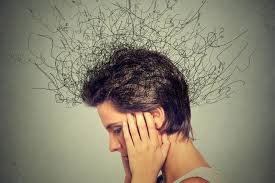Anxiety’s Effect on Your Sexual Health

Anxiety is a widespread mental health issue that impacts millions of people globally. It can have significant impacts on many parts of daily life, including one’s sexual health. Anxiety and sexual health have a complicated and nuanced relationship, despite being frequently disregarded or stigmatized. In-depth discussion of how anxiety affects sexual function, desire, and satisfaction is provided, along with methods for resolving these issues and advancing overall wellbeing.
Recognizing Anxiety’s Impact on Sexual Health
Anxiety is a broad category of feelings that include worry, fear, and trepidation. Anxiety can interfere with physiological functions, such as those pertaining to sexual arousal, desire, and performance, when it is experienced persistently or severely. Anxiety disorders can cause people to feel more stressed out, self-conscious, and engage in negative self-talk, all of which can hinder intimate and functional sexual relationships.
Investigating the Relationship Between Anxiety and Sexual Dysfunction
Studies indicate a reciprocal association between anxiety and sexual dysfunction, whereby both factors impact the other through intricate interactions. Anxiety disorders, including panic disorder, social anxiety disorder, and generalized anxiety disorder (GAD), are linked to a higher risk of sexual dysfunction, which includes reduced desire, premature ejaculation, suppressed orgasm, and erectile dysfunction. On the other hand, having sexual problems can make anxiety, humiliation, and relationship problems worse, which can lead to a vicious cycle of psychological anguish and sexual dysfunction.
Anxiety related to performance and psychological aspects
Sexual health and enjoyment can be greatly impacted by performance anxiety, a particular type of anxiety linked to sexual performance. Performance anxiety sufferers may worry excessively about their ability to engage in sexual activity, fear rejection or criticism from their partner, or have intrusive thoughts that prevent them from enjoying and being arouse. An erection, an orgasm, or completely participating in sexual intimacy may be difficult to achieve or sustain as a result of this increased self-awareness and pressure.
The Function of Cortisol Levels and Stress
Prolonged stress, which is often associated with worry, can also impair sexual health by raising cortisol levels, which are the body’s main stress hormone. Increased cortisol levels have been linked to lower libido, sexual arousal, and satisfaction because they can disrupt the synthesis of sex hormones including estrogen and testosterone. Furthermore, emotional tiredness, anger, and weariness brought on by stress might impede general sexual functioning and reduce motivation in sexual engagement.
Anxiety, Self-Esteem, and Body Image
Because anxiety affects one’s self-esteem and body image, it can also have an impact on one’s sexual health. Sexual insecurities and performance issues can be exacerbated by increased self-consciousness, bad body image, or feelings of inadequacy experienced by those with anxiety disorders. Sexual intimacy and confidence can be eroded by negative self-talk and skewed ideas of attractiveness or desirability, which can result in decreased satisfaction or avoidance of sexual engagement.
Techniques for Reducing Stress and Enhancing Sexual Health
Resolving issues with anxiety in sexual health calls for a multidisciplinary strategy that incorporates lifestyle, relationship, and psychological therapies. Sex therapy, mindfulness-based practices, and cognitive-behavioral therapy (CBT) can assist people in recognizing and challenging unhelpful thought patterns, lowering performance anxiety, and improving communication in close relationships. Deep breathing, frequent exercise, and relaxation techniques are examples of stress management techniques that can help enhance emotional health and resilience in the face of anxiety.
Developing Closeness and Bonding
Intimacy and connection-building are crucial in intimate relationships to help manage the negative effects of anxiety symptoms on sexual health. Intimacy exploration and sexual issues can be addressed in a supportive environment that is created via open conversation, empathy, and mutual support, which can also build trust and emotional connection. In order to improve sexual satisfaction and enhance the link between a couple, couples therapy or relationship counseling can offer a secure environment in which they can freely express their wants, desires, and difficulties.
Conclusion: Handling the Crossroads Between Sexual Health and Anxiety
In summary, anxiety can significantly alter arousal, performance, pleasure, and desire in relation to sexual health. Through a comprehensive comprehension of the intricate relationship between anxiety and sexual function, people may proactively tackle underlying psychological concerns, improve coping mechanisms, and foster intimacy in their relationships. Seeking assistance from mental health specialists, relationship counselors, or sex therapists can offer insightful direction and helpful tools for resolving anxiety-related issues with sexual health and fostering overall wellbeing. In the end, people can empower themselves to embrace their sexuality and find fulfillment and pleasure in close relationships by cultivating self-compassion, resilience, and acceptance.



